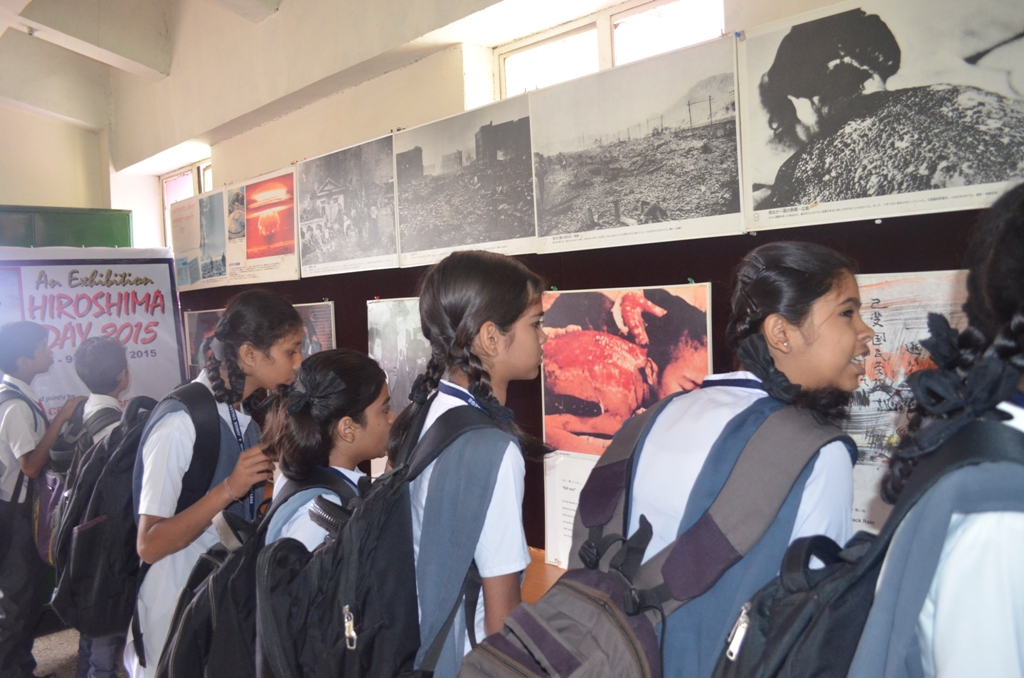DISARMAMENT & SECURITY .
An article by Dr. Balkrishna Kurvey, Indian Institute for Peace, Disarmament & Environmental Protection
On the eve of Hiroshima & Nagasaki Atomic bombing, Hiroshima Day was observed in the Raman Science Center, Nagpur. on 6th August 2015. This is renowned Science Center of Government of India, Ministry of Culture. The theme was ” Environmental Impact of Atomic Bomb Explosion”

Selected High school Students from Nagpur were invited.
To catch them young, we are targeting youngsters who will be future citizens of the country to inculcate the idea of a Nuclear Weapon Free World.
Photographic exhibition of Hiroshima & Nagasaki bombing was also displayed for the public from 6th to 9th August 2015 in the Raman Science Center.
Hiroshima Day was also arranged in Department of Environmental Science, Sardar Patel Mahavidyalaya (College), Chandrapur, India. This prestigious teaching Institute of Central India has more than 7200 students. Students of graduate, post-graduate, Ph.D. and some medical students attended the seminar. The theme was “Nuclear Weapons Disarmament and Environmental Protection and Peace”
I based my address on the study carried out by International Physicians for for Prevention of Nuclear war & Physicians For Social responsibility “Two Billion People at Risk”, December 2013.
In a limited regional nuclear war between India and Pakistan, if 150 Hiroshima type Bombs were used, what will be environmental consequences in Asia in particular and world in General was the theme of the talk.
Unfortunately, there is mistrust, misunderstanding and animosity between India and Pakistan. Any fanatic military officer or political leader could start a nuclear war. Also due to misunderstanding or zealous military officials, nuclear war could be startes. 20 million people would be killed. Great cities of the sub-continent would be destroyed and much of South Asia would be blanketed with radioactive fallout. Climate experts show clearly that even this limited nuclear conflict would affect weather pattern throughout the world. Due to soot and debris injected in the atmosphere 74% of the sun light would be obstructed. Nuclear Winter would emerge. Ozone depletion would increase the incidence of cancer globally. Due to cold and darkness, crops could not be grown and because of non-availability of food grains, 1 billion people in global south would die of starvation and 1 billion others would suffer. Agriculture would be affected in the western hemisphere.
This would be the result of only a limited regional Nuclear War in South Asia. If the superpowers engage in nuclear war, it would be doomsday. Planet earth will suffer untold consequences and the human race would face extinction.
Public education and awareness is the key as there is no medicine. Prevention is the only way to safeguard the human race.
Participants and teachers asked many question, which were aptly answered.